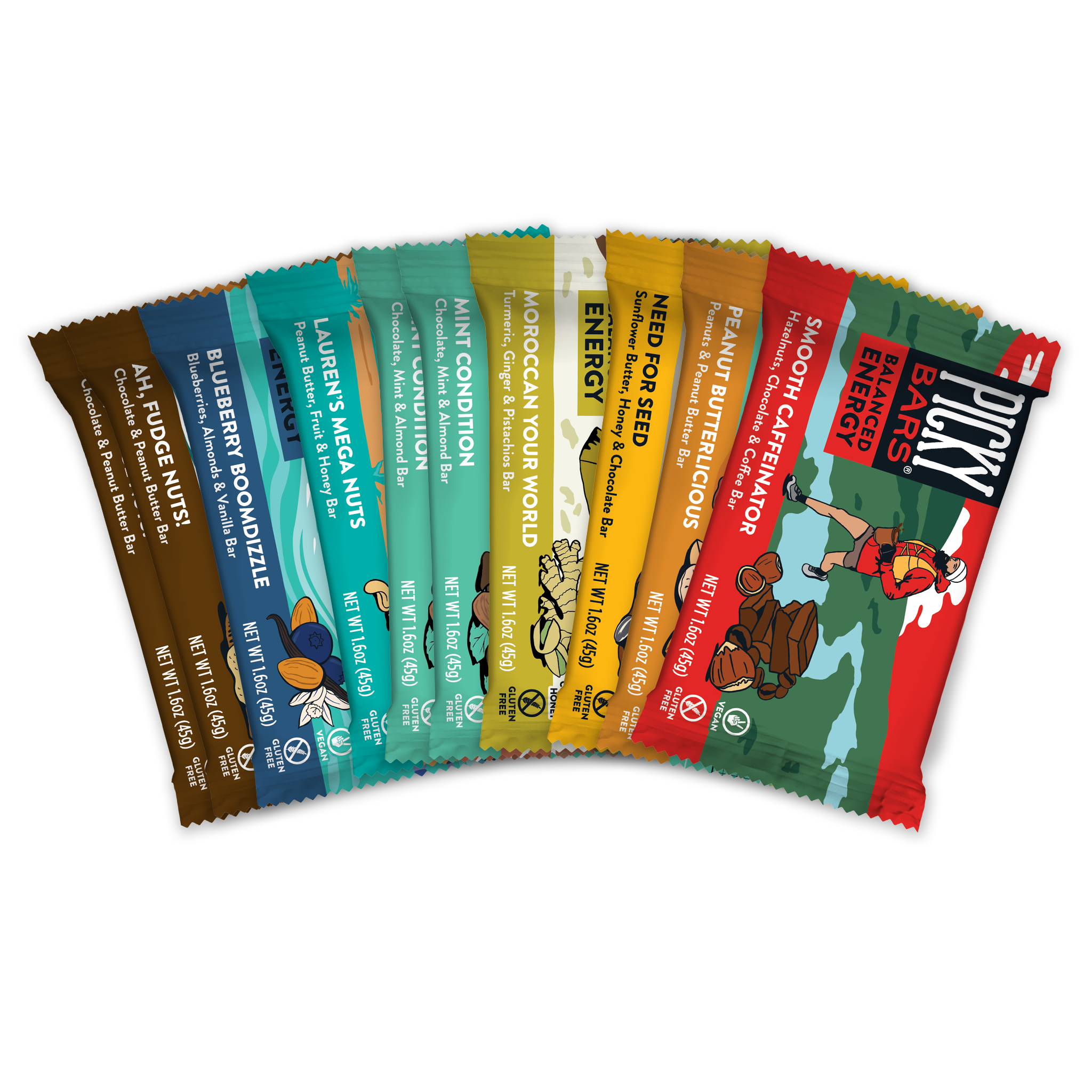· By Sarah Conklin
Guest Post: Alex Varner, “Injuries – A Necessary Evil”

Watching our Picky Team athletes these last few months (after announcing the team in April) has been an incredible ride. Gold medals, repeat wins, World Championship teams, and hours of jaw-dropping ridiculous GoPro coverage from excursions all over the world. It’s been exhausting just sitting here trying to keep up!
But as super human as these men and women seem, they still go through their share of lows between the highs. We watched our jack-of-all-trades runner Alex Varner take the win at Lake Sonoma 50 back in April, followed by quite a few solid showings at other races before eventually dropping 30 miles into Western States 100.
He’s here to share a little about that decision, injury recovery (both physical and mental), and his plan to get back to the big stage in time for some big fall racing. Take it away, Varner!
One of the major factors in my deciding to drop at Western States this year (2015) was the thought that I would avoid the 2 months of painful and frustrating recovery I dealt with last year (see these posts: Squamish DNF and A Break From the Pain). I’ve learned that, for me at least, the difference between recovery and injury is miniscule. In both cases, you have to be extremely careful and no overdo it too soon. Last year (2014) I spent the 8-9 weeks after Western States starting to run again, feeling pain, taking a couple days off and then repeating the cycle. In retrospect, it was short-sighted and impatient, but I had a couple of races on the calendar that I felt like I needed to run. I don’t know why I felt like that, but I did and so I pushed myself to try to come back sooner than I should have. The result was that nasty cycle that prevented me from really getting back into things until Labor Day.
This year, leading into States, I had been dealing with some pain and tightness in my lower shin since late May. The problem was that instead of being able to take some time and get it sorted immediately, I had 3 big races coming up in the next 4 weeks (IAU Ultra Trail World Championships, The Dipsea, and Western States 100). So I spent the two weeks I had between each race getting the shin good enough to toe the line at the next one rather than healing it. I had maybe 1 discomfort-free run during all of June. I knew this would be a problem after States, and am currently dealing with it. This year, it’s a true injury instead of recovery, but in any case, it’s incredibly hard, as it is for anyone who’s ever been injured and unable to participate in their favorite athletic pastime.
I’ve started running twice, both times after taking at least a week off, only to have the pain come back after 2-3 runs (same cycle as before, dumbass). So instead of last year where I kept pushing my body to do something it clearly didn’t want, I’m backing off even more (I am so smart, S-M-R-T). I’m going to take as much time as this thing needs to get itself sorted out. I’m rather frustrated, as I’m missing lovely summer daylight running, but at least I don’t have any races on the calendar (officially) until TNF50 in December, which allows me to mentally focus on the task at hand, which is healing without distraction.
Dealing with an injury (or recovery depending on the situation) is not easy. It basically ensures that you can’t do your chosen activity, which throws a lot of other things in life out of whack. I am certainly more irritable and impatient when I am unable to run, but learning to deal with it, and even coming to embrace it, is an important life skill, I think. Things won’t always go your way and the cliché about how you deal with them rings quite true in the case of injury. The ability to look back at your training and see what happened is an invaluable opportunity to learn about yourself as well. I know I’ve gotten overtraining injuries, as well as freak ones (like slipping on an escalator and banging the hell out of my knee so that it swelled so badly I couldn’t run for 2 weeks), but each one provides a lesson (which might be, say, don’t run drunk up escalators), and seeing that lesson is imperative to moving forward and preventing the same thing from happening again. I view an injury as the direct result (usually) of pushing your envelope too far. But you don’t know how far your envelope can go until it snaps (is that what happens? Do envelopes snap?), and you suddenly find yourself sitting on the recumbent bike in a boot wondering how the hell you got there. That’s when you have to take to the time to see exactly what led you to injury. If you don’t, you risk doing it again. If you do, you’ve learned an important lesson about your physical limitations and hopefully you can apply that to become a better athlete. Then you can start pushing the envelope again with a little more perspective.

Someone at States this year likened a DNF to a death, but I think that holds true for injuries as well in that you go through the 5 stages of grief: denial (I’m not injured), anger (why is this happening to me?!), bargaining (I promise I’ll do my Theraband exercises EVERY DAY if this thing just heals up soon), depression (this thing is never going to heal and I can’t stop eating like I’m still working out), and finally acceptance (I’m injured and there’s nothing I can do about it except work with my body to make sure it heals). It rang especially true for me, as I look back on past injuries and am coming to acceptance with my current situation.
Here are a few things I’ve found to be helpful in dealing with an injury or recovery, in no particular order:
- As soon you realize it’s an injury (or a stubborn recovery), clear your calendar for at least a couple of months and prepare to eat any race registration fees you’ve paid. Not having anything looming out in front of you makes it much easier to focus on the task at hand, which is getting healthy.
- Don’t test the issue. Let it heal completely and then some. Your body will thank you.
- Ease back into training. It’s incredibly freeing to be able to run/bike/swim again without pain, but if you do too much too soon, that won’t last very long.
- Frustrations will arrive. Even when you think you’ve reached acceptance, you will regress to anger or depression from time to time. This regression is natural, but you should try to avoid taking it out on others. No one likes an angry injured person. And it certainly does not win you any sympathy points.
- Find something else that can take your mind off of it (hopefully other than eating). For me, I’ve turned to biking. It’s not as good a workout, but it allows me to break a sweat and get out in nature and I can do it with other injured runners and we can complain to each other out of earshot of our SO’s (who are angels for putting up with us, healthy or injured).
Alex Varner
Twitter + Insta: @afvarner
The post Guest Post: Alex Varner, “Injuries – A Necessary Evil” appeared first on Picky Bars.






